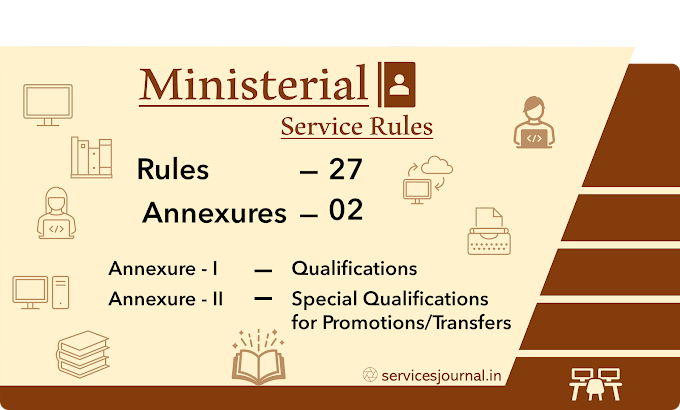1. Registration of the case, giving it Rc.No.
2. Issue of notices to the delinquents and posting the
case for appearance of parties.
3. On the date of appearance of parties, it has to be
verified and noted whether the notices were served on all the delinquents or
not. The following order to be passed:
(A) If
one or all the delinquents appeared, then his/their name(s) to be noted as
appeared and the matter to be posted for filing written statement. If the
delinquent requested for supply of copies of documents, then on receipt of
memo, those documents are to be supplied.
(B) Next the mater to be posted for appearance of
other delinquents who have not appeared.
(C) If any delinquent received notice and failed
to appear, then he is to be set ex parte. No fresh notice is to be issued when
once it is served.
4. If the notice is returned unserved, then fresh notice
has to be issued till the notice is served or party or is appeared.
5. After granting reasonable time (at least 15 days each
time, twice or thrice if requested) for filing written statements or if the
delinquents do not turn up to file written statements, then the absentee
delinquent to be set ex-parte.
6. If any
delinquent has not filed written statement, then it is to be treated that he
has no written statement to file and post the matter for trial and issue
summons to the inquiry officer/inspection officer/auditor/liquidator as the
case may be.
7. If the respondent appears and seeks time two to three
times and thereafter engages an advocate, then short time to be granted for
filing written statement, that too by passing a conditional order to file
written statement, in default, it will be treated as no written statement to be
filed. If for any other reasons, the delinquent requests time for filing
written statement, on the guise of illness, attending to criminal court,
illness of his advocate, then also to impose conditional order. Engaging a new
advocate after seeking considerable time by earlier advocate is not a ground to
grant time for filing written statement.
8. Examination of the Inquiry Officer/Inspecting
officer/auditor/liquidator, as the case may be. His sworn statement is to be
taken on a separate sheet, but not on the docket. Documents are to be marked as
exhibits.
9. Cross examination of the said officer by each
delinquent. Those who have not filed the written statement also can cross
examine.
10.
If any delinquents who were set ex parte turn up and
file a petition to set aside the ex parte order, then to pass orders on merits
either to allow or to dismiss such petition. A conditional order may be passed
for filing written statement on a particular day.
11. Examination of present CEO or authorised
representative of the society and giving chance to delinquents to cross examine
him. If there is no cross examination, to record the same. If the said witness
does not turn up, then to record the same on the docket and to close the
evidence of that witness.
12. Examination of those witnesses who were examined
during the preliminary inquiry u/s 50, 51, 52, 53 as the case may be. Those
witnesses’ statements must be relevant to the issues in surcharge notice.
13. After closing the evidence of department/society, to
adjourn the matter for examination and cross examination of each delinquent in
serial order. They should be allowed to mark relevant documents as exhibits if
any.
14.
After closing evidence, the case is to be posted for
hearing arguments.
15.
After hearing arguments, the matter is to be posted
for orders.
16. While passing orders, each item in the surcharge
notice is to be discussed by referring to the oral and documentary evidence. The
issues or objections raised by the delinquents to be answered on factual and
legal grounds.
17. In the final order, not to rely upon the findings of
the inquiry officer or the DCO while coming to a conclusion. One should not
jump to a conclusion without referring to oral and documentary evidence on each
item and not to merely dismiss or reject the objections raised by the
delinquents or defence counsel as “not satisfactory” without appreciating the
merits in those objections.
Trainer | Facilitator | Consultant
Department of Personnel & Training
Government of India












